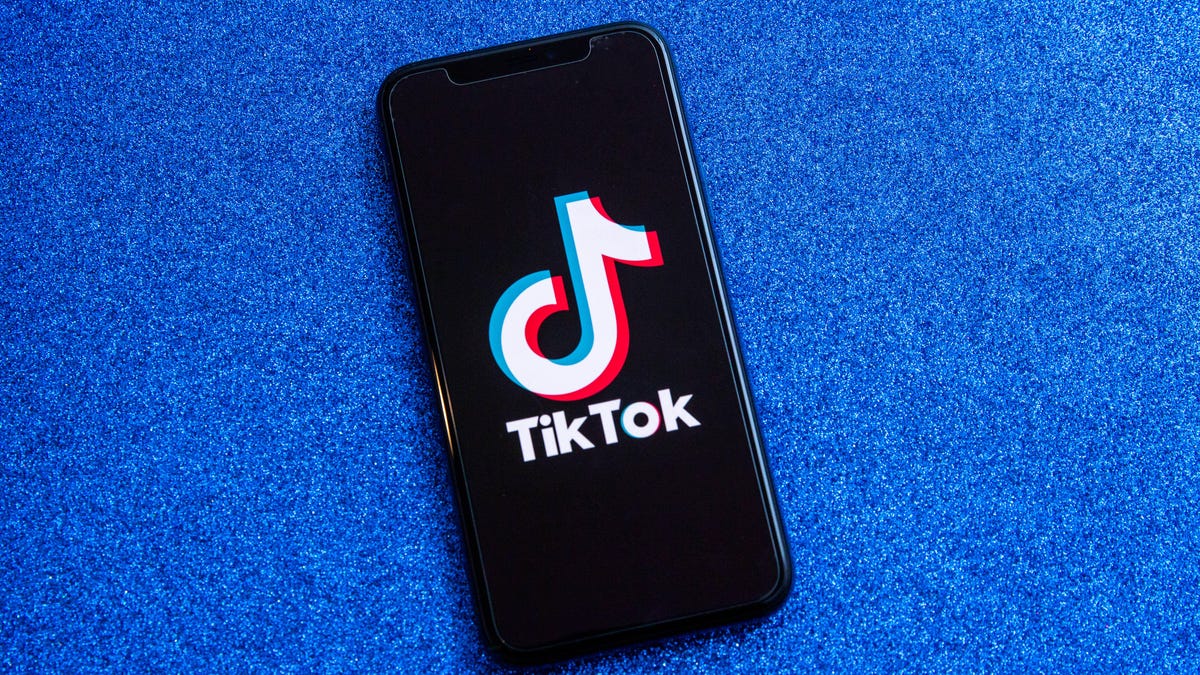Why TikTok's inverted filter is turning people's self-esteem upside down
Commentary: The Deja Vu challenge is all fun and games until it warps your self-image.

Apps like TikTok can at at times challenge our self-esteem.
TikTok has spawned many trends, ranging from funny to inspiring to entertaining. But some crazes coming out of the short-form video app become nothing more than a means for people to either boast or feel insecure about their appearance. Take the inverted filter.
This TikTok filter, which flips the image on your camera to supposedly show you how others see you, isn't new. Some of the top videos using the filter date back several months. But it's seen a recent surge in popularity as part of something called the "Deja Vu challenge," in which users sync video made with the filter to a clip from a song of the same name by Olivia Rodrigo. Videos of people seeing whether their faces are symmetrical (apparently a beauty standard we should aspire to) have garnered millions of views, with some users celebrating their appearances and others crying real tears in dismay.
"Pretty privilege is being able to do this trend without bursting into tears," one girl wrote on a video of her trying the filter. "The fact that that's how ppl really see me," the caption reads.
@joannafayschmid #invertedfilter the fact that that’s how ppl really see me 😅🔫
♬ deja vu - Olivia Rodrigo
"The inverted filter on TikTok does serious damage to my confidence," one tweet reads.
Tweeted another person, "Me calling my dentist 13 years later to tell her I'm ready for that jaw surgery after accidentally using the inverted filter on TikTok."
Me calling my dentist 13 years later to tell her I’m ready for that jaw surgery after accidentally using the inverted filter on tiktok pic.twitter.com/uuVWRPUXj6
— Cailyn (@cailynnnnn) April 14, 2021
While some people are poking fun at the effect the inverted filter has on them, it highlights a disturbing reality of social media . Too often, users of platforms like TikTok and Instagram describe feeling inadequate as they compare themselves with the curated images and unrealistic standards others project on these widely used platforms.
On Facebook-owned Instagram, photoshopping and image filters abound. Everyone, it seems, is in constant competition to post the most flattering picture and rake in the most likes and fawning comments. On TikTok, it's more common to find people without perfectly styled outfits and flawless makeup. But you'll still see trends that leave people feeling they're not good enough, like the "side profile challenge" that was popular late last year. That trend had people gauging whether the side of their face fit the mold of what's conventionally attractive (i.e. whether their nose is "proportional" to the rest of their face). I didn't even know people strived for this beauty standard before I stumbled upon the trend.
TikTok's inverted filter is making people either gloat or burst into tears.
I also wasn't aware a symmetrical face was something we were supposed to covet, but social media always finds a way to remind people what they don't have. (I haven't tried the inverted filter because it seems like a dangerously slippery slope and I'm not going to gamble with my self-esteem.) I'm old enough (and hopefully confident enough) to understand I have to actively ignore arbitrary beauty standards. Some younger users aren't so lucky.
Of course, if any TikTok user comes across a video or trend they don't want to see, they can easily long-press a clip and hit "Not interested" to see less of that kind of content. But it may be harder for young users to resist participating in the latest hot trend their friends are talking about. And at the end of the day, we're all human, and if we're constantly bombarded with reminders we aren't good enough, it's likely to take a toll on us no matter how old we are or self-assured we think we are.
TikTok declined to comment on record about the inverted filter trend.
One video that came out of this trend does a good job of debunking it, though.
"I think there should be more praise for asymmetrical faces," TikTok user helloandrew_ says. "This inverted filter is making people super aware of their asymmetry, and I think that's fine. I want to make that normal because it is, and there's nothing inherently wrong about being asymmetrical. Do you know what is asymmetrical? The staple flower of beauty is asymmetrical," he says next to an image of a rose. "If you are asymmetrical, you are a rose. The conversation's done."
@helloandrew_ #dejavuchallenge I’m remaking this video because Picasso was misogynistic (sorry Picasso baddies) but I think the message is still important!
♬ original sound - Andrew
If you're intent on giving the filter a try, here's how to do it (but go in warned it can mess with you).
- Open the TikTok app and hit "Discover."
- Go to the search bar at the top of the page and type "Inverted."
- At the top under Effects, you'll see the Inverted option, which has an image of two arrows pointing in opposite directions. Click on that and hit the red camera button at the bottom of the screen.
- Start recording, and tap the screen to invert the video. Proceed with caution.
See also: Instagram for kids could be coming, and it would be disastrous

